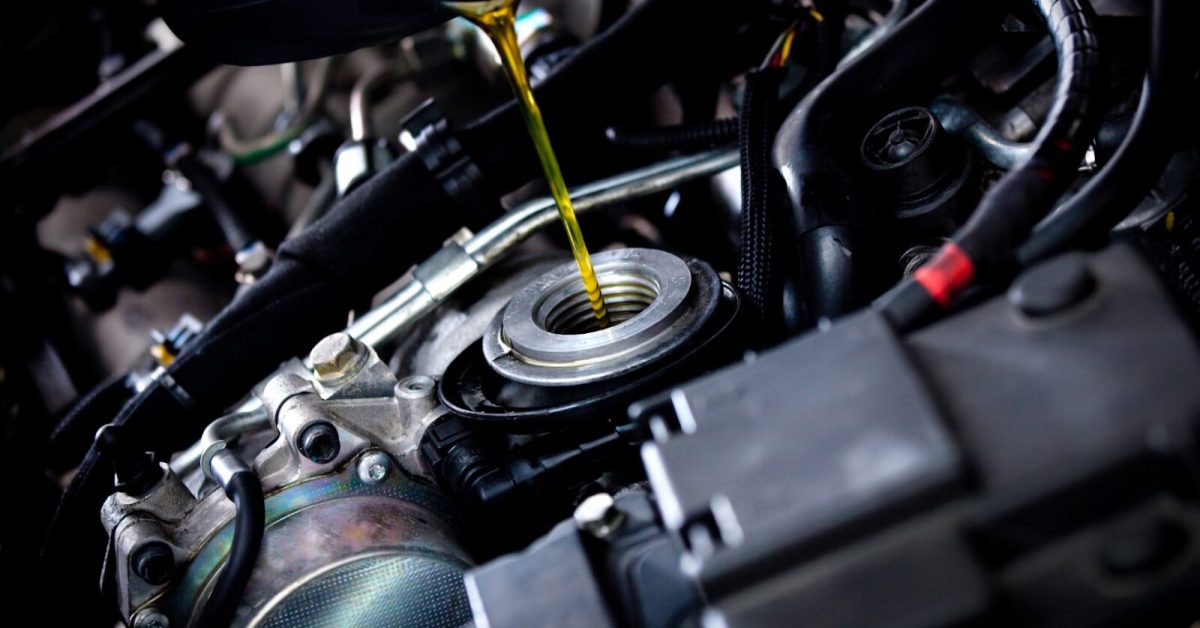Motor oil being poured into engine during service, highlighting maintenance and how many kms between oil changes.
Have you ever wondered if you’re changing your oil too soon, or worse, too late? With so much conflicting advice out there, it’s easy to feel unsure about the right timing. Between evolving engine designs, various oil types, and wildly different driving habits, figuring out how many kilometres to wait before your nextoil change isn’t as straightforward as it used to be.
This guide is here to cut through the confusion. Whether you’re a daily commuter, a weekend road-tripper, or someone who barely drives, we’ll break down the real-world factors that determine how often you should change your oil. By the end, you’ll understand how to match your oil change schedule to your driving style and how to keep your engine running safely and efficiently for the long haul.
What Is the Ideal Distance Between Oil Changes?

For decades, the answer to how many kilometres you should wait between oil changes was fairly standard: every 4,800 kilometres (or 3,000 miles). However, thanks to advancements in oil chemistry and engine design, this guidance has evolved. According to the U.S. Department of Energy, many newer vehicles equipped with modern engines and using synthetic oil can safely go between 8,000 to 12,000 kilometres (5,000 to 7,500 miles) between oil changes, sometimes even longer, depending on the vehicle and how it’s driven (U.S. Department of Energy).
If your car uses synthetic oil, you may be able to extend that interval even further. Full synthetic oil is engineered to resist breakdown better than conventional oil, meaning it can last longer and protect your engine more effectively. Still, your vehicle’s owner’s manual should always be your primary source for the manufacturer’s recommendations.
How Do Synthetic Oil and Conventional Oils Affect Change Intervals?
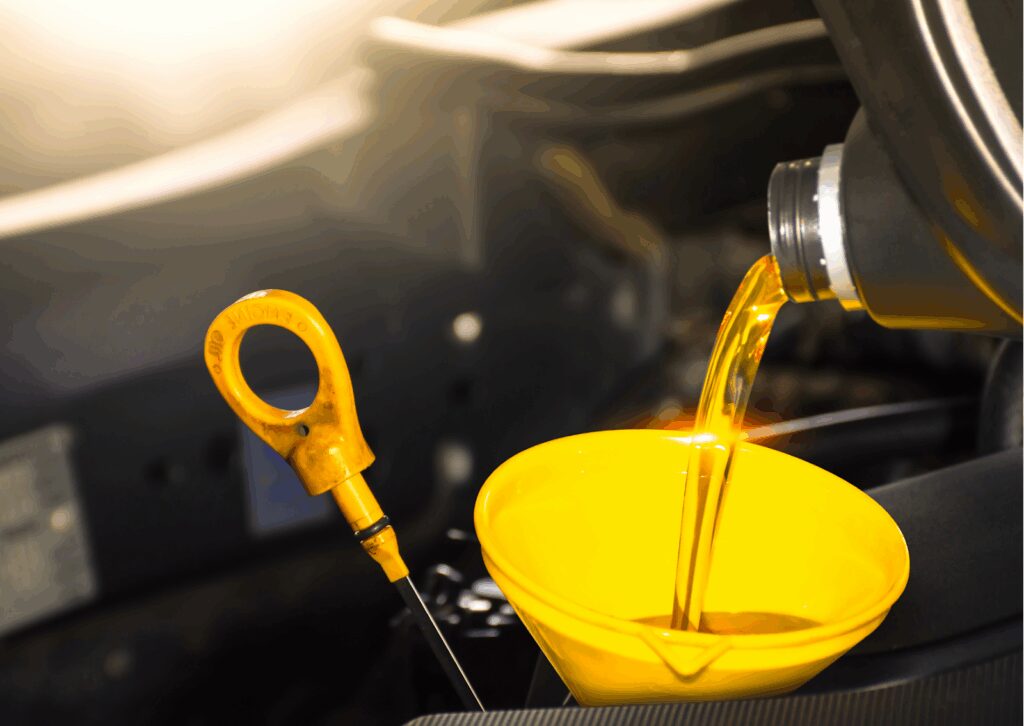
The difference between synthetic and conventional oil isn’t just about marketing. Synthetic oils are chemically engineered to provide superior lubrication, resist high temperatures, and reduce engine wear over time. This makes synthetic oil particularly effective under harsh driving conditions, such as extreme temperatures, stop-and-go traffic, and towing.
Because synthetic oils last longer, more frequent oil changes aren’t always necessary. In many cases, a vehicle using full synthetic oil can go up to 15,000 kilometres between oil changes, though this varies by model, driving style, and other factors. On the other hand, regular oil (also called conventional oil) often requires changing every 5,000 to 7,500 kilometres.
Do You Need to Change the Oil Filter Every Time?
Absolutely. Every time you change your oil, you should also change the oil filter—regardless of whether you’re using synthetic or conventional oil. The filter traps contaminants and metal particles that accumulate as the engine runs. Leaving a dirty filter in place while adding new oil can reduce the effectiveness of the oil and compromise your engine’s health.
Even if you’re extending your oil change interval with high-quality synthetic oil, the filter still accumulates debris over time. Most manufacturers recommend replacing the filter with every oil change to maintain full engine protection. It’s a simple step that can significantly boost long-term engine performance and reliability.
What Are the Signs It’s Time to Change Your Oil?
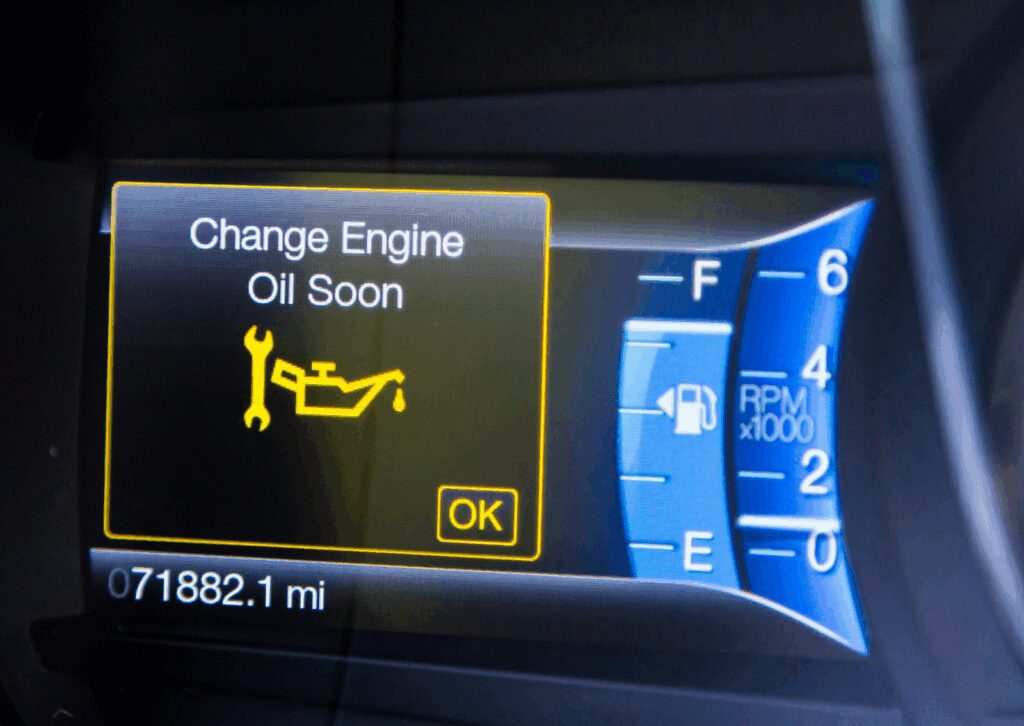
You shouldn’t wait for your car to break down to change the oil. Some warning signs that your vehicle may need an oil change include:
-
The oil change light or maintenance light appears on the dashboard.
-
You notice engine noise or knocking.
-
The oil appears dirty or gritty on the dipstick.
-
The smell of dirty or old oil inside the cabin.
Letting dirty or degraded oil sit in your car’s engine can result in the buildup of sludge, reducing oil life and potentially causing critical damage. It’s not just about mileage—the condition of the oil matters just as much.
Does Driving Style Affect Oil Change Frequency?

Absolutely. How you drive can be just as important as how far you drive. Short trips, especially in cold weather, don’t allow the engine to warm up properly, which can lead to oil contamination from moisture. Frequent short trips in such conditions mean the oil can’t fully protect your engine, requiring more frequent changes.
Aggressive acceleration, hard braking, and frequently driving in stop-and-go traffic also strain the engine. These driving styles can cause engine wear and reduce oil effectiveness more quickly. As a result, even with synthetic oil, you might need to change your oil sooner than the maximum recommended distance.
What Role Does Vehicle Age and Model Play?

The age and model of your vehicle are key factors in determining oil change needs. Older vehicles, particularly those not designed with modern oil systems, might still adhere to the 3,000 miles (or approximately 5,000 kilometres) rule. Newer models often include oil analysis sensors that monitor oil degradation in real-time and alert drivers when it’s time for the next oil change.
Some luxury or performance cars require full synthetic as standard and can go longer between changes. Always consult your owner’s manual or a trusted technician to understand your car’s specific oil change intervals.
Can You Rely on Oil Monitoring Systems?

Many newer vehicles are equipped with oil life monitoring systems that calculate the condition of your oil based on real-time driving conditions rather than a fixed mileage count. These systems consider short trips, engine temperature, load, and other environmental factors to determine when to alert you.
While generally reliable, these systems shouldn’t replace regular maintenance awareness. They’re a helpful guide, but it’s wise to occasionally inspect your oil level and its clarity. Sludge, low oil, or unusual coloration may indicate it’s time to change oil sooner.
What Happens If You Delay an Oil Change?
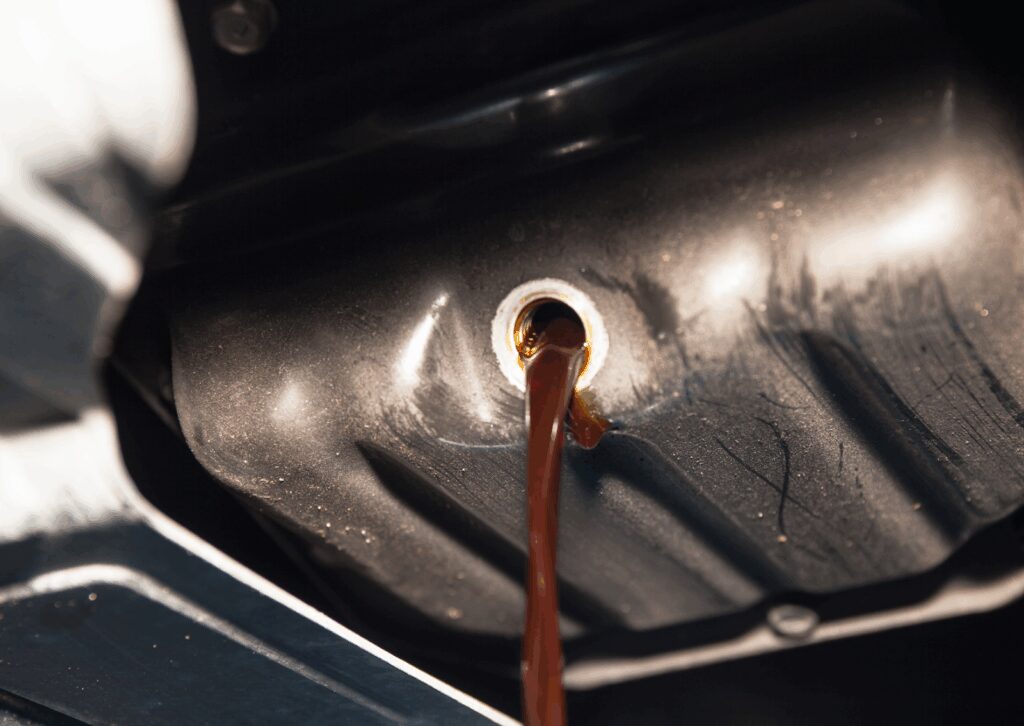
Ignoring your recommended interval for an oil change can lead to a host of problems. As engine oil degrades, it loses viscosity and its ability to lubricate and clean engine parts. This leads to increased engine wear, overheating, and possibly even engine failure.
Old or dirty oil turns into sludge, clogs oil passages, and compromises engine performance. Over time, these effects reduce your vehicle’s mileage, increase fuel consumption, and may void your warranty. When you change your oil on time, you’re not just preserving your engine; you’re saving money in the long run.
How Do External Factors Like Weather Affect Oil Change Intervals?

Extreme temperatures can significantly affect your oil life. In very cold climates, oil thickens, making it harder for the engine to pump it efficiently. In hot environments, synthetic oil is more stable and resists breakdown better than conventional oil.
If you’re operating in dusty, sandy, or mountainous regions or towing heavy loads, you may also need more frequent oil changes. In these cases, it’s best to follow the severe service schedule outlined in your owner’s manual.
Should You Change the Oil Before a Long Trip?
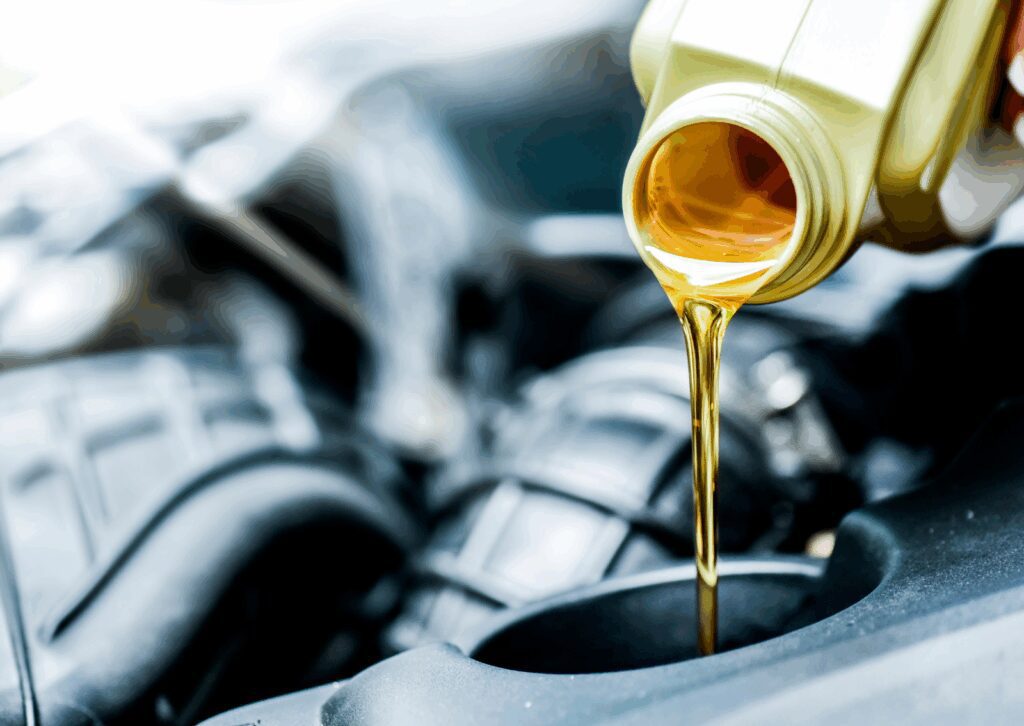
Yes, especially if you’re nearing the end of your oil change interval or planning to drive through extreme temperatures or rough terrain. Changing your oil before a long trip gives your engine the best chance to perform efficiently and reliably. It’s one of the simplest ways to avoid breakdowns during travel.
Traveling across hundreds or thousands of kilometres without checking your oil level or oil condition can be risky. Plan ahead and make it part of your trip preparation.
Why Trust Local Experts for Oil Changes?

If you’re in Loveland or the surrounding areas, trusting a certified, community-oriented shop like Metric Motors for your next oil change ensures you’re getting expert care tailored to your specific vehicle, driving conditions, and maintenance history.
Their team understands how engine technology, synthetic formulations, and local environment impact your oil life. Whether you need help deciding between conventional oil and full synthetic, or simply want to understand your oil change intervals, they offer personalized, transparent service that dealership chains and quick-lube shops often lack.
Ready to Stay on Track With Your Oil Change Schedule?
Your car’s engine depends on clean, effective oil to function at its best. Delaying an oil change can shorten your engine’s life, hurt performance, and lead to costly repairs down the road. With so many variables involved—driving style, environment, model, and manufacturer’s recommendations—it helps to have a trusted local team who can guide you.
At Metric Motors, we make it easy to keep your vehicle on schedule. Our expert technicians take the guesswork out of maintenance and help you understand exactly when to change your oil for long-term performance.
Schedule an appointment today and take the first step toward protecting your engine, your time, and your peace of mind.
Final Thoughts
Whether you’re sticking with regular oil or upgrading to full synthetic, knowing when to change your oil is one of the most critical aspects of responsible car ownership. For car owners, it’s not just about the last oil change—it’s about understanding the several factors that affect your engine’s health, from additives in your oil to the condition of your oil filter.
Today’s engines are designed to perform well with good oil, but you still need to change oil every set number of kilometres based on how and where you drive. Whether you rely on your vehicle for work, family, or road trips, smart customers know that staying ahead on maintenance protects performance and can even boost your vehicle’s sale value down the road.
Your best bet? Learn what your owner’s manual says, evaluate your driving conditions, and talk to a professional who understands how to keep your car running safely. In Loveland, that professional help starts atMetric Motors. While the old 3,000-mile rule served its time, today’s engines and oils are more complex and tailored to different needs.
Works Cited
“Engine Oil 101.” Mobil Oil, https://www.mobil.com/en/lubricants/for-personal-vehicles/auto-care/engine-oil-101. Accessed 19 June 2025.
“Motor Oil Guide.” U.S. Department of Energy, https://afdc.energy.gov/files/u/publication/motor_oil_guide.pdf. Accessed 19 June 2025.
“Owner’s Manual Maintenance Schedules.” Consumer Reports, https://www.consumerreports.org. Accessed 19 June 2025.
“Engine Oil Life Monitoring Systems Explained.” General Motors, https://www.gm.com. Accessed 19 June 2025.
Frequently Asked Questions
How many kilometres can I drive between oil changes?
Most modern vehicles using synthetic oil can go between 8,000 to 12,000 kilometres. However, the best interval depends on your vehicle model, driving conditions, and the manufacturer's recommendations.
Does synthetic oil really allow for longer intervals?
Yes, full synthetic oil is designed to last longer and perform better under extreme temperatures and heavy loads. It can extend oil change intervals up to 15,000 kilometres in some cases.
Can I trust my car's oil life monitoring system?
Oil life monitoring systems are generally reliable and adjust recommendations based on your driving style and environment. Still, it's a good idea to occasionally check the oil level and condition manually.
What happens if I skip or delay an oil change?
Delaying oil changes leads to dirty oil and sludge buildup, which can cause engine wear, reduced fuel efficiency, and even engine damage. Staying on schedule protects your engine and saves money in the long run.
Should I change my oil before a road trip?
Yes. If you're nearing your next oil change or traveling through extreme conditions, changing your oil beforehand ensures better performance and reduces the risk of breakdowns.

